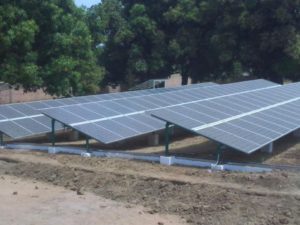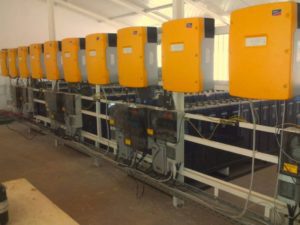Gabon Region an example of Clean Energy in Guinea Bissau
The Gabú Region, eastern Guinea-Bissau, is the first region in the country to make a serious commitment to the use of renewable and clean energy from solar panels. The second largest economic city of the country is undoubtedly an example to follow, regarding the protection of the environment through the consumption of electricity from sources considered clean.
A model that can be implemented in different sectors of Guinea Bissau, being a country with a great amount of sun throughout the year, the bet on clean solar energy can help to preserve the environment, as well as to reduce carbon emissions. A challenge assumed at COP22 by all the states of the world to save the planet.
Three thousand seven hundred (3,700) people from the Gabu region consume electricity through clean energy based on solar panels. A Foundation Rural Energy Services's (SSD-FRES) project initiative, funded by the European Union since 2012.
The system works through solar panels fixed in homes together with batteries, which allows obtaining electricityt and connecting small electronic equipment, such as mobile phone, television or refrigerators.
Solar Power Plant in Cuntuboel starts in the first quarter of 2017
According to Archives Fernandes, administrative and financial head of the Foundation Rural Energy Services (SSD-FRES), the solar power plant will have a capacity of 100 kilowatts and will cover five hundred (500) households, allowing consumers to connect all electronic devices without current loss. It will also cover welding companies and other companies that consume large amounts of energy.
Archives Fernandes revealed that the solar plant will start operating in the first quarter of this year, noting that political instability has delayed the operation planned for December 2016.
The financial director also assured that, if the experience goes well, they will extend the installation of the same solar plant model to all the sectors that make up the Gabú region and later to the whole country.
Read the full article here (Portuguese only)
See the FRES Guinea Bissau video here.


